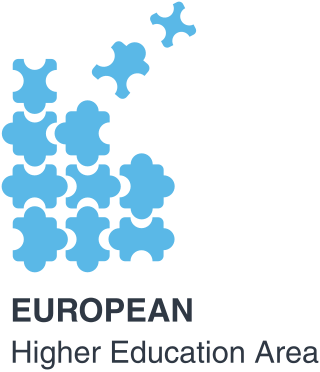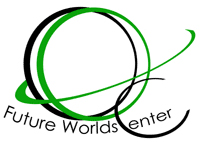The implementation of the Dayton Accords of 1995 has focused the efforts of policymakers in Bosnia and Herzegovina, as well as the international community, on regional stabilization in the countries-successors of the former Yugoslavia. Relations with its neighbors of Croatia and Serbia have been fairly stable since the signing of the Dayton Agreement in 1995.

Mostar is a city and the administrative centre of Herzegovina-Neretva Canton of the Federation of Bosnia and Herzegovina, an entity of Bosnia and Herzegovina, and the historical capital of Herzegovina.

The European Higher Education Area (EHEA) was launched in March 2010, during the Budapest-Vienna Ministerial Conference, on the occasion of the 10th anniversary of the Bologna Process.

Youth empowerment is a process where children and young people are encouraged to take charge of their lives. They do this by addressing their situation and then take action in order to improve their access to resources and transform their consciousness through their beliefs, values, and attitudes. Youth empowerment aims to improve quality of life. Youth empowerment is achieved through participation in youth empowerment programs. However scholars argue that children's rights implementation should go beyond learning about formal rights and procedures to give birth to a concrete experience of rights. There are numerous models that youth empowerment programs use that help youth achieve empowerment. A variety of youth empowerment initiatives are underway around the world. These programs can be through non-profit organizations, government organizations, schools or private organizations.

The Austrian Service Abroad is a non-profit organization funded by the Austrian government which sends young Austrians to work in partner institutions worldwide serving Holocaust commemoration in form of the Gedenkdienst, supporting vulnerable social groups and sustainability initiatives in form of the Austrian Social Service and realizing projects of peace within the framework of the Austrian Peace Service. The Austrian Service Abroad is the issuer of the annually conferred Austrian Holocaust Memorial Award.

Lesbian, gay, bisexual, and transgender (LGBT) people in Bosnia and Herzegovina may face legal challenges not experienced by non-LGBT residents. Both male and female forms of same-sex sexual activity are legal in Bosnia and Herzegovina. However, households headed by same-sex couples are not eligible for the same legal protections available to opposite-sex couples.
In the European Union education is at the responsibility of its Member States and their Ministries of education that they have; in such, the European Union institutions play only a supporting and overseeing role. According to Art. 165 of the Treaty on the Functioning of the European Union, the Community
shall contribute to the development of quality education by encouraging cooperation between Member States, through actions such as promoting the mobility of citizens, designing joint study programmes, establishing networks, exchanging information or teaching languages of the European Union. The Treaty also contains a commitment to promote life-long learning for all citizens of the Union.
The architecture of Bosnia and Herzegovina is largely influenced by four major periods, when political and social changes determined the creation of distinct cultural and architectural habits of the region.
The Committee on Culture and Education (CULT) is a committee of the European Parliament.
The European Association of History Educators (EuroClio) was established in 1992 with the support of the Council of Europe. The NGO works as a European wide facilitator for innovation and progress in history Education. The organisation contributes not only to the development, but also on the actual implementation of regional, national and European long-term projects, which focus on establishing knowledge, experience and expertise in the countries by training and consulting teachers. EuroClio develops teaching materials, builds and maintains professional Networks and acts as advisor to governments, international organisations, NGOs, History Teacher Associations and other Organisations. EuroClio is supported by the Europe for Citizens Programme of the European Union and has, for many years, Official Participatory Status and is part of the EU Stake Holder's Network in Education and Training.

The Croats of Bosnia and Herzegovina, often referred to as Bosnian Croats or Herzegovinian Croats, are native to Bosnia and Herzegovina and constitute the third most populous ethnic group, after Bosniaks and Serbs. They are also one of the constitutive nations of Bosnia and Herzegovina. Croats of Bosnia and Herzegovina have made significant contributions to the culture of Bosnia and Herzegovina. Most Croats declare themselves Catholics and speakers of the Croatian language.

The foreign relations between Bosnia and Herzegovina (BiH) and Croatia are bound together by shared history, language, neighboring geography and cultural commonalties. They established diplomatic relations in 1992, following the dissolution of Yugoslavia and independence of Croatia. The two countries share a 932-kilometer (579 mi) border – the second longest external land border in the European Union (EU). Modern relations between the two states are functional but remain tense after ineffective 21st-century attempts at détente.

Ramona Nicole Mănescu is a Romanian politician and lawyer. From 24 July 2019 to 4 November 2019, she served as minister of Foreign Affairs in the Romanian Government. She was a Member of the European Parliament serving 2007 to 2013 and 2014 to 2019 from the National Liberal Party, active within the European People's Party. As part of this group she is a member of the European Parliament Committee on Foreign Affairs, vice-chair in the Delegation for relations with the Mashreq countries and a substitute member in the Committee on transport and tourism and in Delegation for relations with the Arab Peninsula.
Musicians Without Borders (MWB) is an umbrella organization working with local organizations and musicians to bring social change and peaceful, liveable conditions to their own communities. It was founded in 1999 by Laura Hassler, an American peace activist and musician. From their projects and programs, MWB has developed its training program, sharing skills and knowledge with musicians around the world, in support of their continuing work in their local communities.

Future Worlds Center (FWC) is a non-profit, non-Governmental independent organization active in programs with future orientation in areas related to positive social change, social entrepreneurship and transformation.
European Network Remembrance and Solidarity (ENRS) was created in 2005 as a joint initiative by German, Hungarian, Polish, and Slovak ministers of culture. In 2014 Romania joined the structure.

Gimnazija Mostar is a gymnasium in Mostar, Bosnia and Herzegovina. Formerly called Gimnazija "Aleksa Šantić" in honour of the eponymous poet, it is nowadays popularly referred to as Stara gimnazija.
The European Association for the Education of Adults (EAEA) is a European NGO whose purpose is to link and represent European organisations directly involved in adult learning. The main focus is to promote adult learning and access to and participation in non-formal adult education for all, particularly for groups currently under-represented. EAEA aims at influencing EU policies on non-formal adult education and lifelong learning and cooperates with the institutions of the European Union and with international organisations as the Council of Europe, the International Council for Adult Education (ICAE) and UNESCO.
Young Muslims was an Islamist organization that was established in 1941 in the Kingdom of Yugoslavia, and was active during World War II in the Independent State of Croatia and after the war in the Socialist Federal Republic of Yugoslavia. The organization continued to operate as an underground network in the Socialist Republic of Bosnia and Herzegovina and eventually disappeared after its leadership was arrested by the communist Yugoslav authorities in 1949. Although ideologically pan-Islamist, the Young Muslims had a strong nationalistic component, advocating the autonomy of a Muslim-dominated Bosnia and Herzegovina.

Caritas Bosnia and Herzegovina is a Catholic not-for-profit social welfare and humanitarian relief organisation in Bosnia and Herzegovina. It is a service of the Episcopal Conference of Bosnia and Herzegovina and a full member of both Caritas Europa and Caritas Internationalis.










